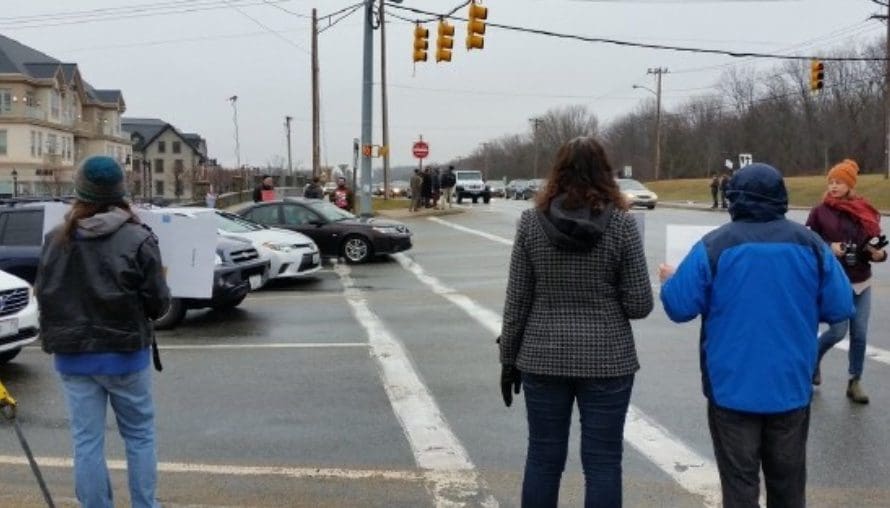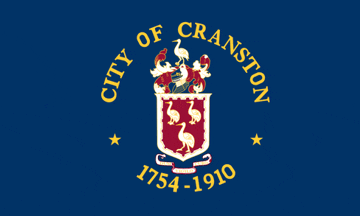Search Posts
Recent Posts
- RI Veterans: Did you know? 25.04.24 (100th for Louis Dolce, events, resources) – John A. Cianci April 25, 2024
- Business Beat: Bad Mouth Bikes takes home 3 national awards April 25, 2024
- Rhode Island Weather for April 25, 2024 – John Donnelly April 25, 2024
- We Cook! Mill’s Tavern’s Cajun North Atlantic Swordfish, Mango Salsa, Cilantro Citrus Aioli April 25, 2024
- The Light Foundation & RI DEM’s 4th Annual Mentored Youth Turkey Hunt a success April 25, 2024
Categories
Subscribe!
Thanks for subscribing! Please check your email for further instructions.

Cranston settles on panhandling case. ACLU calls it a major victory for the rights of the poor
In what the ACLU of Rhode Island calls “a major victory for the First Amendment and the rights of the poor”, and the Mayor of Cranston describes as a “”time to end this time-consuming and costly lawsuit and move on to other efforts to protect the public on our streets and in our neighborhoods.” – the four-year battle over the city’s ability to enforce an anti-panhandling ordinance is over.
The ACLU of RI and the City of Cranston, with U.S. District Court Chief Judge William Smith today signed an order declaring the City’s anti-panhandling ordinance unconstitutional and barring the City from enforcing it or enacting any similar ordinance. The six-page consent judgment was entered with the agreement of the City and the plaintiffs in the case.
From the City of Cranston:

“After consultation with the city’s special legal counsel and the city solicitor’s department, I have determined it is in the Cranston taxpayers’ best interest to end this litigation,” said Hopkins. He stated, “During the transition and in my first few months in office I have been carefully reviewing the various pending litigation involving the City. Based on the posture of this case in Federal Court and the recommendation of Marc DeSisto, our well-respected special counsel, I felt that we should find an acceptable resolution that minimizes future financial exposure to the City.”
The lawsuit followed a February 2017 ordinance enacted by the City Council dealing with public safety at the urging of Hopkin’s predecessor administration. “The ordinance was passed in my second month on the City Council in 2017,” said Hopkins. He recalled it was the second attempt by the Fung administration to address the safety of pedestrians and the motoring public.
Judge William Smith issued a temporary restraining order in August of 2017 staying enforcement of the ordinance. “The Judge cited the likelihood of the Plaintiffs’ success on the merits of the case when he issued the restraining order,” noted Hopkins.
Cranston Mayor Hopkins said, “When I reviewed the case with legal counsel, I felt that it was time to end the pursuit of this worthwhile public safety effort. My responsibility as Cranston’s Mayor is to exhibit leadership and make difficult decisions. The settlement of this case is warranted.”
“I supported the majority on the City Council in 2017 consistent with my strong views that our citizens need the best protection in our neighborhoods and on our streets.” Hopkins emphasized his recent vigorous opposition to ATV’s and other unregistered vehicles was consistent with his unwavering support for public safety. “Last Thursday, the Ordinance Committee approved an ordinance to give Cranston Police greater authority to protect drivers and pedestrians in our community. I look forward to signing that ordinance upon adoption at the end of the month.”
In agreeing to settle the matter, the City will be permanently enjoined from enforcing Ordinance Section 10.40.070. After a two year period, the City of Cranston may move to dissolve the Court Order due to a change in circumstances or in the law.
Hopkins noted that as part of the settlement, the City will reimburse the ACLU for some legal expenses incurred. He said the City will reimburse the ACLU a total of $140,000 that can be paid over two fiscal years. “We have the funds available and our finance department will coordinate payment with legal counsel.” Hopkins stated, “While $140,000 is not insignificant, my former council colleague, the late John Lanni, had predicted that a challenge to the ordinance would end up costing the city $500,000 (see minutes of February 15, 2017 special council meeting).
“Hopkins concluded by saying, “It is time to end this time-consuming and costly lawsuit and move on to other efforts to protect the public on our streets and in our neighborhoods.”
From the ACLU of RI:

The ordinance, barring any person from entering a roadway “for the purpose of distributing anything to the occupant of any vehicle or for the purpose of receiving anything from the occupant of any vehicle,” was enacted in February 2017 by a 5-4 vote of the City Council. ACLU of RI cooperating attorney Lynette Labinger filed suit against the ordinance, arguing that it violated the First Amendment right of individuals to solicit donations and to distribute literature on Cranston roadways. In response, Judge Smith issued a temporary restraining order against the ordinance’s enforcement, and that order remained in effect while discovery in the case proceeded.
The ACLU has long opposed ordinances like these for criminalizing poverty. Although City officials had claimed the ordinance was adopted as a “public safety” measure and cited the number of car accidents at various city intersections, the consent judgment notes that discovery conducted for the lawsuit “has not substantiated that there is any correlation between pedestrian accidents and the soliciting of donations and leafletting on the city streets between 2007 and the present,” nor did it show any increase in vehicle or pedestrian accidents during the time the ordinance has not been enforced.
In April 2016, the ACLU had favorably settled a lawsuit against Cranston over a similar ordinance which City officials acknowledged violated the First Amendment. Undaunted, the City Council nonetheless went ahead a year later to adopt a new anti-panhandling ordinance, which made several cosmetic revisions to the earlier one in an unsuccessful attempt to pass constitutional muster.
Plaintiffs in the lawsuit settled today were the R.I. Homeless Advocacy Project; two Cranston residents – Karen Rosenberg and Deborah Flitman – who wanted to leaflet from traffic islands but were barred from doing so under the ordinance; and Francis White, Jr., a disabled and formerly homeless person, who has occasionally relied upon panhandling to support himself.
Another aspect of the consent judgment requires the City “to notify all Cranston prosecutors and law enforcement officers of the issuance” of the judgment and of “their obligation to refrain from enforcing” the ordinance. The City also agreed to pay $140,000 in attorneys’ fees.
The consent judgment allows the City to seek to dissolve the permanent injunction after two years “due to a change in circumstances or in the law,” and also allows police to continue to enforce traffic safety ordinances “where the act of distributing anything to the occupant of any vehicle or the act of receiving anything from the occupant of any vehicle is not an element of the offense.”
Lynette Labinger, ACLU of RI cooperating attorney, said today: “This is a significant victory for the exercise of First Amendment rights. Our lawsuit established beyond question that there is simply no valid ‘public safety’ basis for interfering with a person’s constitutional right to leaflet or to ask for help from other members of the public. We applaud the City’s new administration for recognizing this fact and agreeing to end efforts to criminalize asking for financial assistance on city streets, sidewalks and medians.”
Steven Brown, ACLU of RI executive director, said today: “Anti-panhandling ordinances serve only to criminalize poverty. The ACLU is hopeful that this consent judgment will mark the last attempt by municipalities across the state to punish those who peacefully seek to exercise their First Amendment right to solicit financial support from strangers.”

Good! Poverty is NOT a crime and its about time to stop criminalizing requests for financial assistant from the general public and to make damn sure there are no attacks by enforcement officers, for being panhandlers.